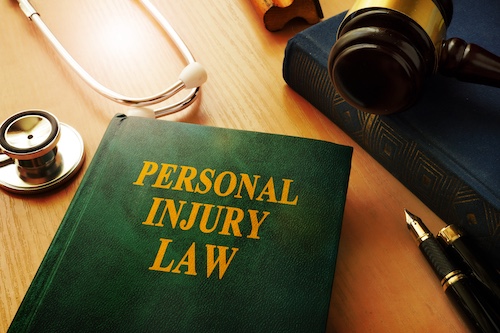Social Media Impact on Your South Carolina Injury Case
At McDougall Law Firm, we focus on protecting the rights of injury victims across South Carolina. Our team combines decades of experience with a clear, client-first approach. As Beaufort personal injury lawyers, we work to secure fair compensation while guiding clients through every stage of their case. We understand the challenges that social media, insurance companies, and legal procedures create, and we are committed to delivering strong results with professionalism and care.
Social media impact reaches far beyond casual posts and online communities. In a personal injury claim, what you share on social media sites and social platforms can directly affect compensation and credibility. Insurance companies, defense attorneys, and jurors may use digital communication, personal profiles, and user-generated content to question physical and mental health claims.
A single post on social media apps can become evidence in court under South Carolina law. This is why guidance from a Beaufort personal injury lawyer is essential when protecting your rights during a case.
Social Media’s Role in Everyday Life
Social media impact is part of daily routines for many people in South Carolina. What seems like simple interaction on social platforms often becomes important in legal matters.
Growth of Social Media Usage
Social media usage has expanded across all age groups. Pew Research Center reports steady growth in young people, young adults, and older users adopting mobile devices and online platforms. Social media sites and social media apps like Facebook, Instagram, TikTok, and X allow instant messaging, news consumption, and live streaming. This constant social media use has made digital communication central to how people share information.
Effects on Mental Health
Regular use of social networks can shape physical and mental health. Social media habits can create social anxiety, low self-esteem, or poor mental health. Young people and younger users are especially affected when comparing their own feelings to other people’s lives. While social support and positive comments on social media pages can provide emotional support, exposure to inappropriate content, fake news, or sexual images often causes mental health issues.
Social Media’s Role in Human Behavior
Social media presents both benefits and risks. Online communities help people maintain relationships, find professional networking opportunities, and build professional connections. At the same time, time spent on social media platforms can affect social skills and lead to social media addiction. Shared interests, digital technology, and user-generated content keep people connected, but they also shape public opinion, political activism, and social awareness.
Everyday Communication and Business Use
Communication on social media includes instant messaging, electronic communication, and direct communication across geographical distance. Businesses use social media marketing for brand promotion, customer engagement, and to engage customers through online platforms. Industry trends and market trends show companies rely on social media’s role in building a positive relationship with other users.
How Social Media Presents Risks in Personal Injury Claims
Social media impact can become a powerful tool for insurance companies and defense attorneys during a personal injury case.
User Generated Content as Evidence
Social media sites and online platforms store user-generated content that can be used in court. Photos, videos, and comments shared on social media pages are treated as evidence. Under South Carolina Rules of Evidence Rule 401, any post that makes a fact more or less probable is admissible. A single upload on social media apps may contradict your injury claims.
Activity and Location Posts
Social media usage often includes check-ins, live streaming, and posting images on mobile devices. These updates can suggest you are more active than you claim to be. For example, photos from a trip or sports event can be used to question physical and mental health limitations. Opposing counsel will study social media habits to find proof that challenges your case.
Direct Communication and Messages
Instant messaging and electronic communication on social networks also carry risks. Private chats and direct communication can be subpoenaed in South Carolina. These messages may show inconsistent statements about your injuries or well-being. Even if deleted, social media platforms may store copies that can be retrieved.
Personal Profiles and Perception
Social media presents a public image that shapes perception. Inappropriate content, sexual images, or poor digital communication can reduce credibility in front of a jury. A personal profile that shows positive comments or business opportunities may be used to argue that you suffer no serious loss. Under S.C. Code Ann. § 15-32-530, juries may reduce noneconomic damages if they believe a plaintiff maintains a normal lifestyle.
Legal Consequences of Inappropriate Content
Social media impact reaches the courtroom when inappropriate content appears in a personal injury case.
Risk of Damaging Credibility
Social media pages that display sexual images, spread rumors, or share fake news can damage credibility. Jurors may link poor social media habits with poor judgment. Defense attorneys may argue that inappropriate posts show low self-esteem, poor mental health, or limited awareness of consequences.
Employment and Financial Loss
Social media usage is also tied to employment law. Employers often review personal profiles and online platforms before making hiring decisions. Inappropriate content on social networks can affect claims for lost wages or reduced earning potential. If a plaintiff appears active in business opportunities or brand promotion, an insurer may argue that financial damages are lower than claimed.
South Carolina Statutory Limits
South Carolina law sets limits on non-economic damages. Under S.C. Code Ann. § 15-32-220, juries can consider evidence that reflects on a plaintiff’s well-being. A social media profile filled with positive comments, social support, or customer engagement may suggest no serious disruption to physical and mental health. This can reduce the amount of compensation available.
Permanent Digital Footprint
Inappropriate content on social media sites often remains online even after deletion. Social media platforms store user-generated content that can be recovered during litigation. Electronic communication and digital technology create a permanent record. Once entered into evidence, such posts may become central to a case and limit recovery.
Best Practices for Protecting Your Case Online
Social media impact can be reduced by following careful steps while a personal injury claim is active.
Limit Social Media Usage
Reduce time spent on social media sites and mobile devices. Adjust privacy settings and apply parental controls where possible. Avoid online platforms that encourage live streaming, user-generated content, or frequent posting. Limited access lowers the chance of exposing information that can be used against you.
Avoid Discussing Your Case
Do not share details about your injury, treatment, or legal strategy on social media pages. Even positive comments or social support from other users may be misread in court. Direct communication or instant messaging about the claim should be avoided, since electronic communication can be recovered and used as evidence.
Maintain Private Support Channels
Seek emotional support and social awareness from trusted friends or family offline. Communication through phone calls or in-person meetings is safer than digital communication on social platforms. Using offline social support protects your own feelings and prevents digital records from becoming part of the case.
Consult a Beaufort Personal Injury Lawyer
Before posting anything online, contact a Beaufort personal injury attorney for guidance. A lawyer understands how social media habits influence credibility in South Carolina courts. Professional connections with your attorney ensure that you protect your legal rights and avoid harmful digital communication that could affect compensation.
Why Insurance Companies Love Social Media
Social media impact gives insurance companies a powerful way to limit or deny personal injury claims.
Monitoring Online Platforms
Insurance adjusters regularly track social media sites and social networks for new content. They study personal profiles, user-generated content, and social media pages to find signs of activity that reduce the value of a claim. Even short posts or shared interests can be used to argue that a plaintiff does not suffer from poor mental health or limited physical ability.
Using Digital Communication as Evidence
Electronic communication and instant messaging often appear in discovery. Social media usage on mobile devices leaves a permanent record. Deleted photos, live streaming clips, or direct communication with other users can be recovered. This creates evidence that defense attorneys may present to a jury under South Carolina Rules of Evidence.
Undermining Claims of Pain and Suffering
Insurance companies use social media platforms to challenge damages. Positive comments from other users, images showing social skills or business opportunities, and posts about customer engagement can suggest a plaintiff is living a normal life. Under State v. Pickens, 320 S.C. 528 (1995), electronic records are admissible in court. Insurers apply this standard to argue for lower compensation on noneconomic damages such as pain, suffering, and emotional distress.
Shaping Public Opinion
Insurance defense teams know that juries pay attention to human behavior. Social media presents a version of life that may not match reality. Photos of young adults at social events, posts showing employment law opportunities, or content highlighting professional networking can shift how jurors see a plaintiff’s well-being. This shift in perception can reduce the strength of a case.
Contact an Experienced Beaufort Personal Injury Attorney ASAP!
The team at McDougall Law Firm understands how social media usage can shape the outcome of a personal injury case in South Carolina. A Beaufort personal injury attorney from our firm will guide you on best practices, protect your rights, and build the strongest claim possible. Do not let social media platforms or online profiles reduce the compensation you deserve.
Contact us at 843-438-4386 for a free case consultation today!




